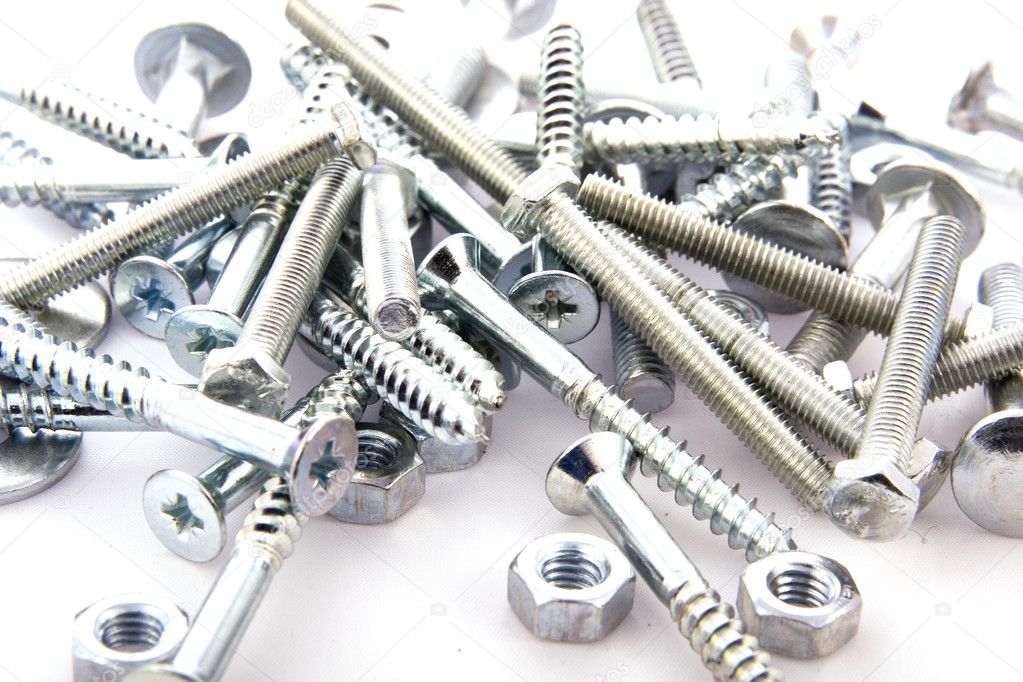In the world of infrastructure, automotive repair, and do-it-yourself tasks, fasteners are often the silent supporters that hold everything together. These crucial fasteners come in a wide range of shapes, sizes, and substances, each crafted for specific applications. Comprehending the essentials of nuts and bolts is not just useful for professionals but is also extremely helpful for the everyday DIY enthusiast looking to approach home improvement tasks with confidence.
This guide is designed to clarify the complicated world of fasteners. From distinguishing between a range of fasteners to exploring their various uses, you will learn how to select the appropriate fastener for your plans. Whether you're working on heavy-duty construction, car maintenance, or simple household fixes, we will cover the specifics you need to ensure long-lasting and effective connections. Let's dive into the nuts and bolts of this crucial mechanical system.
Types and Applications of Nut Fasteners and Bolt Fasteners
Nut fasteners and bolts are crucial fasteners used across various industries and applications. At the most basic level, bolts can be classified into various types, including hex bolts, carriage bolts, and lag bolts, each having specific uses. Hexagon bolts, for instance, are perfect for heavy-duty uses where durability is critical, while carriage fasteners are suitable for fastening wood to wood due to their rounded top and slick body. Lag fasteners, conversely, are particularly designed for anchoring massive wooden frameworks or heavy loads, which makes them indispensable in construction projects.
Grasping the role of different nuts is equally important. Regular nuts are commonly utilized with bolt fasteners, but specialty nut fasteners like locking nuts and flange nuts play key roles in preventing loosening under oscillation and providing a wider bearing surface. The choice of nut fastener often is determined by the use; for instance, lock nuts are critical in car maintenance where high vibrations are present. Flanged nuts may be preferred in constructions that require alignment and stability, highlighting the importance of selecting the right fastener.
In addition to conventional applications, nuts and bolts have specific applications in unique environments. Corrosion-resistant fasteners are highly regarded for their rust resistance, making them ideal for external constructions and nautical applications. Additionally, click now as anchor bolts provide necessary support for foundation work, while nylon lock nuts offer increased safety by stopping unintended loosening. Choosing the right nuts and bolt fasteners based on composition and use is paramount for guaranteeing the longevity and safety of any undertaking.
Materials and Coatings
When selecting nuts and bolts, the substance used plays a vital role in influencing their performance and durability. Metal is the most typical material, known for its strength and versatility. It is frequently used in a variety of uses, making it a necessity in many sectors. For settings prone to corrosion, stainless steel is an excellent choice due to its ability to rust and capacity to tolerate harsh conditions. Other materials like brass and aluminum are also used, with bronze providing good corrosion resistance and aesthetic appeal, while aluminum offers a lightweight yet incredibly strong option for specialized uses.
Coatings applied to nuts and bolts significantly affect their longevity and suitability for specific environments. try this website is a popular choice for providing a sacrificial layer of protection against oxidation, making these fasteners suitable for outdoor use. Galvanized coating, which entails applying a thick layer of zinc, enhances strength and is preferred for heavy-duty tasks exposed to moisture. Additionally, powder finish offers a customizable finish that not only improves aesthetics but also boosts resistance to wear and chemicals, ideal for decorative or specialized projects.
Recognizing the differences in materials and coatings can help users make informed decisions tailored to their specific needs. For instance, when dealing with outdoor installations, opting for corrosion-resistant coatings on steel fasteners is important for ensuring long-term performance. Recognizing the environmental factors at play and the specific requirements of a project can guide the selection process, ensuring that the chosen nuts and bolts will provide reliable service in their intended applications.

Purchasing Guides and Comparative Analysis
In the context of choosing the appropriate nuts and bolts for your task, grasping the substances and details is essential. Various applications demand different levels of strength, resistance to corrosion, and durability. For instance, stainless steel fasteners are perfect for outdoor applications due to their ability to rust. Conversely, if you are working with wood, choosing wood screws or lag bolts suitable for soft or hardwoods will ensure a tight fit. Always consider environmental factors and mechanical requirements before making a purchase.
Another, important aspect to consider is the thread type, which includes rough, smooth, and metric threads. Coarse threads are commonly used in applications that require quicker assembly, while fine threads offer better grip and tensioning in metal-to-metal applications. Understanding the distinctions between these thread types can help you choose fasteners that will most suit your individual needs, thereby boosting the performance and longevity of your projects.
Finally, assessing the quality of nuts and bolts is important before making a purchase. Look for Head Screws that meet industry standards and verify their grades. For instance, a bolt with a higher grade number generally signifies better strength and reliability. Utilize comparison guides to weigh the strengths and weaknesses of various fasteners. By investing time in research and contrasting options, you can ensure that you choose the best appropriate nuts and bolts, enhancing both safety and functionality for your tasks.
